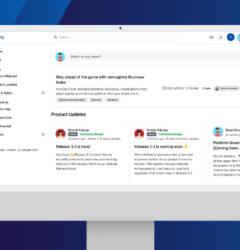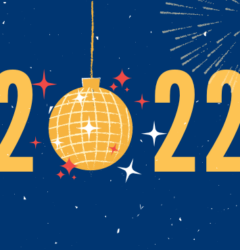
Reading Time: 4 minutes
Hackathons have become a widely appreciated addition to the IT world. A fruitful competition where individuals come together to work on finding solutions for a specific problem.
The Project Management Institute has been the vanguard of educating individuals about the benefits and insurmountable possibilities of No-Code Low-Code Citizen Development. PMI recently organised the Make Reality Challenge which was concluded on 17th March 2022. In the challenge, nearly 10,000 college and university student contestants ages 18-24 globally participated. Around 5000 Make Reality Challenge teams from 65 countries were asked to identify a problem and propose a solution relevant to one of the 17 United Nations (UN) Sustainable Development Goals (SDG).
A brief about PMI Make Reality Challenge
As part of the competition, three rounds were conducted. In the first stage i.e., the Ideation Stage, teams were asked to submit their application ideas. In the second stage i.e., the Prototype Stage, teams selected from the first stage based on the ideas were asked to build prototypes for their ideas on one of the participating No-Code. Quixy was one of the participating platforms. After the second stage of prototype building, 24 teams from 8 regions of PMI were selected for the Grand finale round.
More than 80 teams used Quixy as their no-code platform to bring their ideas to life. Of the final 10 winners, five had developed their apps on Quixy. Here is a detailed description of the winners and what they created using Quixy.
1st Place Winner – Global Winner- Team Tech Era
According to some studies, electronic medical records play an important role in avoiding prescription errors that might lead to death or pose a severe health risk to patients. There is just one such portal in Rwanda, named IvuliroTech, which was established by Karisimbi Technical Solutions and lets hospitals record patient data online. It currently serves only 12 hospitals. UbuzimaPrivacy is an innovative technology built by Team Tech Era that will allow any hospital to record patient data online, including testing, results, medications, and illness trajectory.
1st Place Winner – Asia Pacific – Team Artemis
In order to improve business operations that were adversely affected after the covid19 pandemic, the team created an application called ARTESIM which stands for Auto-assessment and Real-Time Tracking of ESG Management through Information Systems. The application was created to determine whether or not company operations will be sustainable in the future based on the ESG (E-Environmental S-Social G-Governance).
The application carries three simple assessments for organizations. It helps them in determining whether the partner or vendor conducts ESG practices, identifies partners that have excellent ESG practices, creates a summary of assessment and pinpoints the potential gaps across all ESG areas, and finally helps organizations to make informed decisions.
Also Read: Quixy Earns Gold Tier Status in PMI Citizen Developer Partner Program
1st Place Winner – North America – Team MEM
The team created a multilevel application called ECONERD. The application allows users, as well as brands to make a recycling transaction. With ECONORD, users can recycle different types of clothing items and can also select the type of cloth material in exchange for redeemable reward points. On the other hand, the participating brand can profit from recycling the product and earns goodwill in the market. Users can choose the pick-up location by locating a pin on the map, which generates a QR code as a next step. And once the transaction is completed, the user is required to click “submit” as the final step. The application admin has the ability to view reports on product and material recycling, report charts on the number of transactions made, active users, and reward charts.
2nd Place Winner –India – Team Niraale
The team created an Embed app on Quixy named Create Purchase Order. As the embed app link can be shared anywhere via any social platform, external customers can select the supplier of their choice and fill in the form details of things they wish to buy. In addition to this, they also fill in information such as shipping address and contact info etc. Now, the supplier validates the offer and confirms it. The supplier then allocates a delivery agent with the received order no., supplier name and receiver name with the supplier’s e-signature. The delivery agent can then check the delivery location from the app, and deliver the order to the respective customer.
2nd Place Winner – China – P&E Team
The team created an app called Carbon Metaverse, that helps users in creating a low-carbon consumption life. At the first step, users, once logged in, fill in details like no. of steps taken, amount of low carbon food consumed, tons of water saves, amount of energy saved etc. Based on the user-submitted data, the team evaluates whether or not the application is applicable for low-carbon consumer-based certificates based on certain standards. Once approved, the users get the certificate, which has three taglines based on levels. For example, the First step for low carbon life, The main force of low carbon life, and The king of low carbon lifestyle are based on the saver’s level, respectively.
Takeaway
Unlike traditional hackathons where software developers come together to build solutions, hackathons like PMI’s Make Reality Challenge is providing non-technical users the freedom to build applications without writing any line of code. No-code platforms like Quixy are enabling business users without coding knowledge to realize their dream of building applications and bringing their ideas to life.
Login
Please login to comment
0 Comments
Oldest















